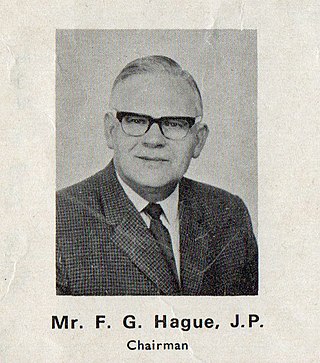Related Research Articles
James Bell was a British trade unionist and Labour Party politician who represented Ormskirk from 1918–22. He was described by a fellow union official as "one of the shrewdest negotiators the trade unions in the cotton industry had ever had."

James Mawdsley was an English trade unionist. Alongside Winston Churchill, he stood as a Conservative Party candidate in the double Oldham by-election of 1899. He was born in Preston, Lancashire, to cotton spinner James Mawdsley and his wife, Jane.

The Amalgamated Weavers' Association, often known as the Weavers' Amalgamation, was a trade union in the United Kingdom. Initially, it operated in competition with the North East Lancashire Amalgamated Weavers' Association in part of its area, and it was therefore nicknamed the Second Amalgamation.
The United Textile Factory Workers' Association (UTFWA) was a trade union federation in Great Britain. It was active from 1889 until 1975.
William Mullin was a British trade unionist.

John William Ogden was a British trade unionist.
James Hindle was a British trade unionist.
The General Council of the Trades Union Congress is an elected body which is responsible for carrying out the policies agreed at the annual British Trade Union Congresses (TUC).

Joseph Cross (1859–1925) was a British trade unionist.
Harry Clement Kershaw was a British trade unionist.
Harold Bradley was a British trade unionist.

Fred Garfield Hague was a British trade unionist.
The North East Lancashire Amalgamated Weavers' Association was a trade union federation of local weavers' unions in part of Lancashire in England, in the 19th century.
Joseph King was a British trade unionist.
The Burnley and District Weavers', Winders' and Beamers' Association was a trade union representing workers in the cotton industry in the Burnley area of Lancashire, in England. As cotton manufacturing dominated the town's economy, the trade union played an important role in the town, and several union officials became prominent national figures.
The Nelson Weavers' Association (NWA) was a trade union representing cotton weavers in the area of Nelson, Lancashire. As the main industry in the town, the union has been influential in its history, and some of its leaders became significant national figures.
Zephaniah Hutchinson was a British trade unionist and political activist. Known as the leading left-wing activist in the Lancashire cotton trade unions, he served for 28 years as leader of the Bacup Weavers' Association.
Charles Schofield was a British trade unionist.
James Stott was a British trade union leader, who became secretary of the International Federation of Textile Workers.
Luke Park was a British trade union leader.